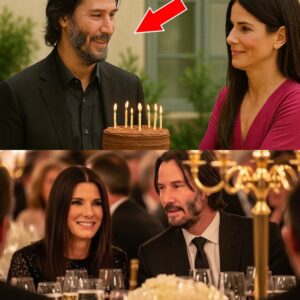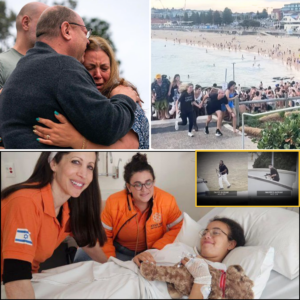In a move that’s ignited a firestorm of criticism across social media and beyond, rapper DaBaby has once again found himself at the center of controversy with the release of his new music video for the track “Save Me.” Dropped on September 16, 2025, the nearly four-minute visual dedication to Iryna Zarutska—the 23-year-old Ukrainian refugee brutally stabbed to death on a Charlotte light rail train last month—has been slammed as “unbelievably insensitive” by fans, activists, and fellow artists alike. What DaBaby intended as a poignant tribute to a local tragedy has instead been decried as exploitative, with calls to cancel the Charlotte native growing louder by the hour. As the video racks up over 500,000 YouTube views, the debate rages: Is this art imitating life in service of awareness, or a crass bid for relevance from a rapper whose career has been plagued by scandal?
The video opens with grainy surveillance footage from the Charlotte Area Transit System (CATS), capturing the harrowing moments before Zarutska’s death on August 22, 2025. In the clip, the young woman—dressed in her khaki pants and dark shirt from her shift at Jupiter’s Pizzeria—boards the Lynx Blue Line at Scaleybark station around 9:46 p.m. She settles into a seat, scrolling on her phone, unaware of the danger lurking behind her. The footage cuts off just as 34-year-old Decarlos Dejuan Brown Jr., the alleged attacker, lunges forward with a folding knife, stabbing her multiple times in the neck and torso. Zarutska clutched her throat as blood pooled on the train floor, collapsing in her seat before succumbing to her injuries en route to the hospital. The unprovoked attack, witnessed by a handful of passengers who failed to intervene in time, has since become a symbol of urban America’s fraying safety net.
From there, DaBaby—real name Jonathan Lyndale Kirk—transitions into a dramatized reenactment aboard what appears to be an actual CATS train, filmed at recognizable South End stations. An actress portraying Zarutska, clad in the same pizzeria uniform, walks toward the car, while another actor dressed in a red hoodie mirrors Brown’s attire from the real footage. DaBaby, seated nearby in a black hoodie, delivers his verses with a mix of introspection and aggression: “Do you think you can save me? / Think you could save me like your God or something?” The chorus loops hauntingly, underscoring the rapper’s regret over a world where “some people you just can’t save.” In a stark departure from reality, DaBaby inserts himself as the heroic bystander, grabbing the attacker’s hand at the last second to halt the blade. Security guards—wearing uniforms from Professional Security Services—escort the would-be killer away, and the video fades with a screenshot of Zarutska’s GoFundMe page, which has surpassed $450,000 in donations for her family.
The YouTube description reads simply: “A Dedication to Iryna Zarutska.” DaBaby followed up with an Instagram Reel captioned “#DontMissTheMessage,” urging viewers to grasp the deeper intent—a lament for missed opportunities to prevent violence, both against Zarutska and the troubled souls like Brown who perpetuate it. Lyrics delve into themes of mental health neglect and systemic failure, with lines like “Man, we can’t save ‘em. You know what I’m sayin’? I might be one of them,” reflecting on the rapper’s own brushes with the streets of Charlotte. He ends the video staring solemnly at the camera, his expensive watch glinting as a subtle reminder of the chasm between survival and success. For DaBaby, a proud son of the Queen City, this was meant to honor a neighbor’s daughter while sparking dialogue on public transit safety and mental health crises—issues that hit close to home in a city grappling with rising fare evasion and underfunded services.
But the execution has struck many as tone-deaf at best, exploitative at worst. Social media erupted almost immediately, with X (formerly Twitter) users branding the video a “mockery of her death” and accusing DaBaby of turning tragedy into a “self-insert hero arc.” One viral post from TikToker 404Breezy, with over 63,000 followers, fumed: “What in the world made him think it was OK to post that? He made a mockery of her death—who on his team greenlit this?” The backlash snowballed, with hashtags like #CancelDaBaby and #JusticeForIryna trending nationwide. Critics pointed to the graphic reenactment—complete with lingering shots of the knife poised to strike—as retraumatizing for Zarutska’s family, who only viewed the full surveillance footage days before the video’s release. “This isn’t tribute; it’s sick,” tweeted one user, echoing sentiments from Ukrainian diaspora communities horrified by the commodification of a war refugee’s story.
Zarutska’s life was a testament to quiet resilience, making her death all the more gut-wrenching. Born in Kyiv, Ukraine, in 2002, she earned a degree in art and restoration from Synergy College before the Russian invasion upended her world in February 2022. With bombs raining down, Zarutska fled with her mother, Olena; sister; and younger brother to a cramped bomb shelter, enduring months of fear before immigrating to the U.S. that August. Her father stayed behind, bound by Ukraine’s martial law barring men aged 18-60 from leaving. Settling in Huntersville, North Carolina, Zarutska dove into her new life with fervor: learning English at a community college, working odd jobs, and landing a gig at the local pizzeria where she charmed customers with her radiant smile. She dreamed of becoming a veterinary assistant, her love for animals evident in neighborhood walks with neighbors’ pets. By May 2025, she’d moved in with her boyfriend, who taught her to drive—her first taste of independence after a car-less upbringing. “She quickly embraced her new life in the United States,” her obituary read, “a gifted and passionate artist whose light touched everyone.”
That light was snuffed out in an instant of senseless violence. Brown, a Charlotte local with 14 prior arrests—including armed robbery, felony larceny, breaking and entering, and untreated mental health issues—had been released from jail just weeks earlier on a minor charge. Authorities later revealed he boarded without a ticket, a detail that fueled debates on fare enforcement and transit security. The stabbing unfolded in under 10 seconds; Zarutska bled out before paramedics arrived, her final moments captured in chilling clarity on CATS cameras. Brown fled but was arrested blocks away, knife in hand, and charged with first-degree murder—a federal offense carrying a potential death penalty under the Justice Department’s mass transportation statute. FBI Director Kash Patel vowed, “This brutal attack was a disgraceful act that should never happen in America,” while Attorney General Pam Bondi promised Brown would “never again see the light of day as a free man.”
The murder quickly became a political lightning rod. Conservative figures like Laura Loomer seized on the footage to decry “Democrat-run cities” and “soft-on-crime policies,” falsely claiming no Black passengers intervened (surveillance showed a mix of inaction and shock). The White House echoed the rhetoric, blaming “Radical Left” failures for Zarutska’s death, while Trump allies pushed for federal troops in urban hotspots like Charlotte and D.C. Ukrainian officials in Kyiv expressed muted horror, with one diplomat telling Al Jazeera, “She escaped war for this? It’s a betrayal of the American dream.” Charlotte Mayor Vi Lyles, a Democrat, countered by highlighting falling crime rates and calling for mental health investments over partisan finger-pointing. The family, through uncle Mykola Zarutskyi, shared their devastation: “She didn’t deserve that and nobody does. It’s been very tough—we watched the video like everyone else, and it was just terrible.”
DaBaby’s video landed in this powder keg, amplifying the outrage. For a rapper whose career has teetered on controversy’s edge, the timing feels eerily familiar. Since exploding with 2019’s “Suge” and his Grammy-winning debut Baby on Baby, Kirk has navigated a minefield of scandals: a 2018 deadly shooting outside a Charlotte Walmart where he fired in self-defense (acquitted in 2020); a 2021 homophobic, HIV-misinformation-laced rant at Rolling Loud Miami that cost him festival slots, brand deals, and collaborations with Dua Lipa and Elton John; a 2022 bowling alley brawl and assault charges; and even a 2025 gig in Russia amid Universal Music Group’s boycott over the Ukraine invasion. His 2022 album Blame It on Baby tanked amid the fallout, and low ticket sales forced cancellations, like a 2025 New Orleans show. Defenders argue his raw authenticity—rooted in Charlotte’s streets—fuels his art, but detractors see a pattern of poor judgment chasing clout.
Supporters of the video, though fewer, praise its intent. One X user defended: “If you watch the full thing and listen to the lyrics, you’ll get it—he’s hurt he wasn’t there to stop it, to save both her and the attacker. Mental health is key.” The GoFundMe link has boosted donations, and some Charlotte locals appreciate a hometown voice elevating the story. Yet, the chorus of condemnation drowns them out. Ukrainian-American activists like those from Razom for Ukraine called it “a grotesque exploitation,” while GLAAD—still stinging from DaBaby’s 2021 comments—tweeted: “Trauma isn’t your aesthetic. Respect the dead, don’t dramatize them.” Even CATS distanced itself, confirming no permit was sought for filming and vowing tighter security protocols.
As of September 19, 2025, DaBaby has yet to respond directly, his socials a mix of defiant posts and eerie silence on the video. Interscope Records issued a vague statement: “DaBaby’s work often reflects real pain from his community—we support his voice in addressing hard truths.” But with streams spiking amid the fury, questions swirl: Will this be another bump in the road, or the cancellation that sticks? For Zarutska’s family, planning a memorial amid the media maelstrom, the focus remains justice—Brown’s trial looms in 2026—and healing. Her uncle summed it up: “Iryna wanted a better life. Let’s honor that by making transit safe, not by turning her into a prop.”
The “Save Me” saga underscores a broader tension in hip-hop: where does social commentary end and insensitivity begin? DaBaby’s attempt to rewrite a nightmare as redemption has only deepened the wound, leaving fans to ponder if some stories are too raw for rhyme. In Charlotte’s shadowed stations, Zarutska’s absence echoes louder than any beat—a reminder that some saves come too late, and some tributes miss the mark entirely.





